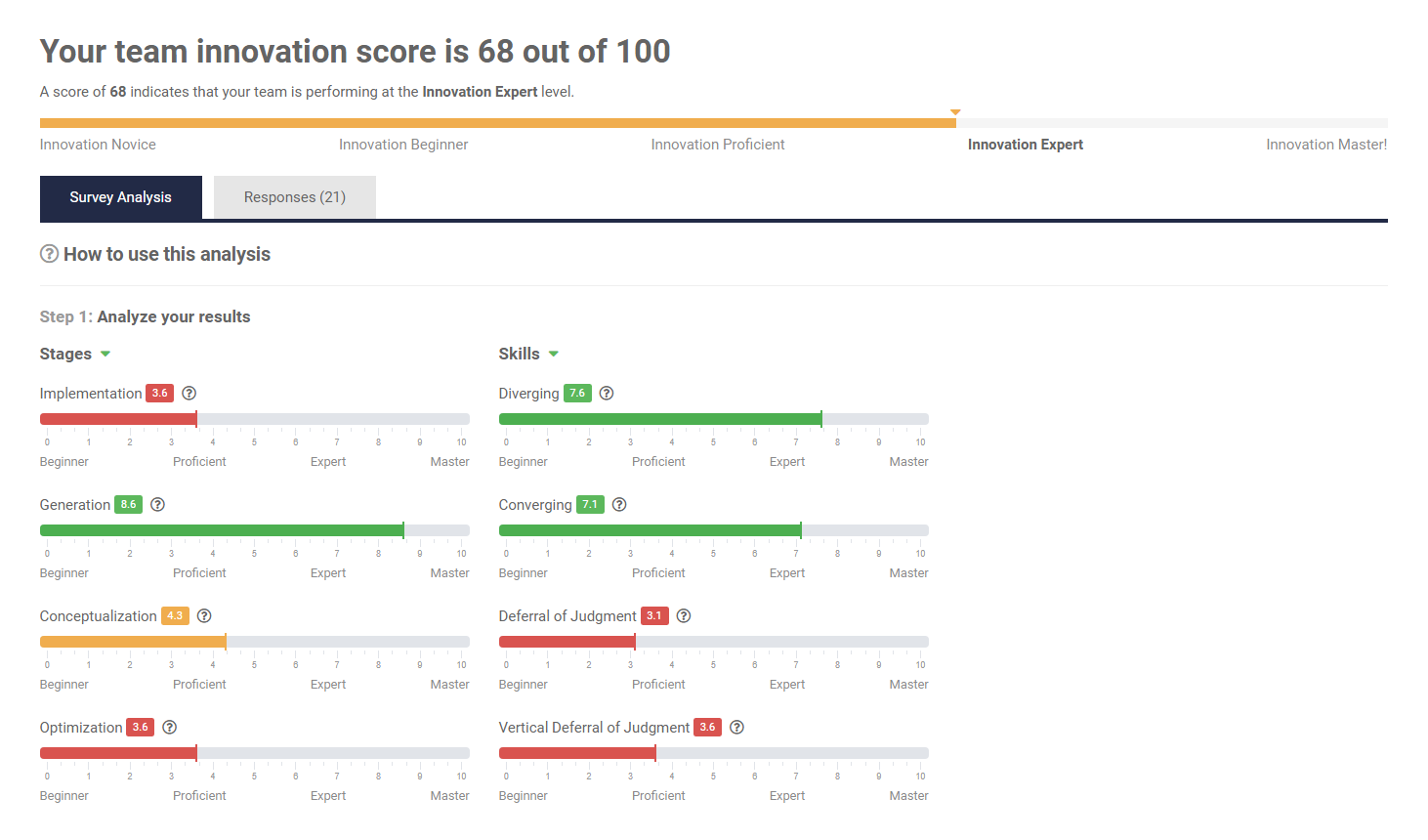InQ Survey
Skills Assessment for TeamsHow does your team perform? Find out with the InQ survey.
The InQ (Innovation Quotient) survey assesses the quality of your team's problem-solving and innovation. It measures attitudes, skills and behaviors. Each person gives other team members a score depending on how frequently certain attitudes and behaviors crop up.

What does the InQ survey tell you?
By measuring a team's creative and critical thinking ability, and its aptitude for keeping an open mind, the InQ survey tells you where improvements can be made. Along with the InQ score, suggested actions are provided to address a team’s specific strengths and weaknesses.
Many different attitudes, skills and behaviors drive successful innovation, and many of us aren't aware that these things are learnable. Team leaders can therefore use the InQ survey to focus attention on the training required to build missing innovation skills.
How does the InQ survey relate to the Basadur Profile?
The InQ survey also provides information relating to the four Basadur Profile styles – generation, conceptualization, optimization and implementation. While The Profile measures individual innovation styles and a team scatter diagram indicates how a team is weighted when it comes to the skills required for each stage of the process, the InQ survey assesses how well a team actually practices those skills.
What’s holding back your innovation?
Our research identifies the following shortcomings that inhibit team innovation and cause low morale and flat performance:
- When confronted with new ideas, people are often prematurely critical. This shuts down productive thinking.
- People often wait for other team members to find problems for them to solve, rather than taking the initiative to seek out, anticipate and pursue opportunities themselves.
- Individuals and teams are often unable to communicate clearly, and fail to define terms well. They assume that "we all know what that means," when in fact people may not.
- Teams often confuse symptoms, problems, causes and effects. The end result is poor problem definition. It is vital that a team defines a problem clearly, and ensures everyone understands and agrees on it.
- Often individuals and teams fear failure. They're afraid their ideas are not perfect, and will subject them to criticism.




















